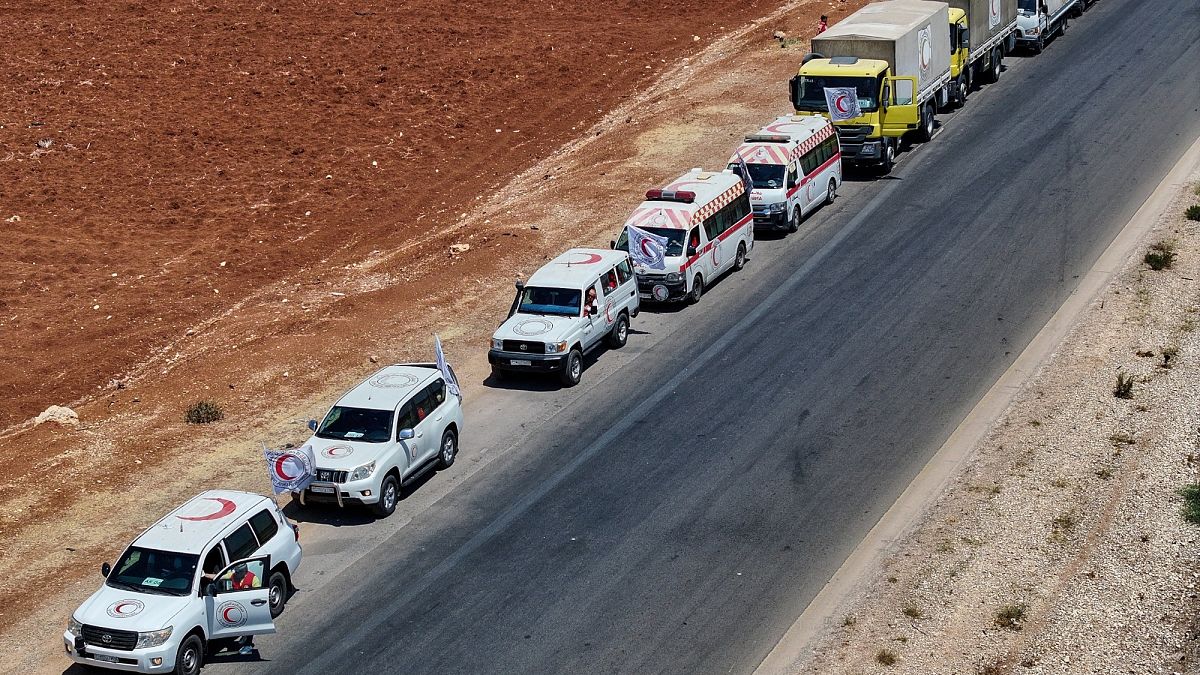

In recent developments, the global community is witnessing a delicate balance of humanitarian efforts and diplomatic challenges, as events in key regions continue to unfold. From much-needed aid convoys heading to conflict zones, to pressing diplomatic conversations, the need for collaboration and support resonates deeply worldwide.
In Syria’s Suwayda region, humanitarian relief efforts are gaining momentum. A second aid convoy is journeying to the heart of the region following recent clashes between Bedouin and Druze communities. The convoy is delivering essential supplies, including 4,000 food baskets, 66 tonnes of flour, 10,000 bottles of drinking water, and crucial medical supplies, highlighting a tangible commitment to alleviating human suffering in the aftermath of conflict. The local authorities, alongside international partners, are working diligently to ensure these resources reach the communities most in need, thereby fostering hope and resilience amidst adversity.
Meanwhile, the Gaza Strip is facing a dire humanitarian crisis, as highlighted by both local and international voices. Over 100 humanitarian organizations, including prominent groups such as Doctors Without Borders and Oxfam, have raised alarms about the widespread famine affecting the area. This situation is further pressing as the World Health Organization’s chief, Tedros Adhanom Ghebreyesus, describes the scenario as “man-made mass starvation,” attributed to blocks hindering vital supplies. Calls for easing these restrictions emphasize the urgency for international cooperation to relieve the suffering and prevent further escalation of the humanitarian crisis.
At the diplomatic forefront, the EU-China summit represents a significant engagement despite tempered expectations. Held in Brussels, this summit serves as a platform for dialogue, where European and Chinese officials engage on various pressing global issues. Although the hopes for substantial breakthroughs are modest, the gathering underscores the importance of sustained diplomatic communication and partnership in addressing shared challenges. The mere occurrence of the summit is celebrated as a positive stride toward maintaining and potentially enhancing bilateral relations.
In the UK, significant political discussions surround the handling of international crises, particularly the situation in Gaza. With prominent figures like Foreign Secretary David Lammy voicing strong objections to the ongoing humanitarian issues, there is a tangible push for translating these condemnations into actionable policies. This discourse underscores a broader narrative of accountability and responsibility in foreign policy, as stakeholders consider the path forward in contributing to global stability and peace.
As these narratives continue to evolve, they illustrate the critical interplay between relief efforts on the ground and the broader diplomatic conversations shaping international relations. Whether through the provision of urgent humanitarian aid or via strategic dialogues among global leaders, the collective goal remains focused on fostering peace and sustainability in affected regions. By nurturing collaboration and understanding, the global community can aspire to navigate the complexities of current challenges with empathy and determination.
Source: {link}
